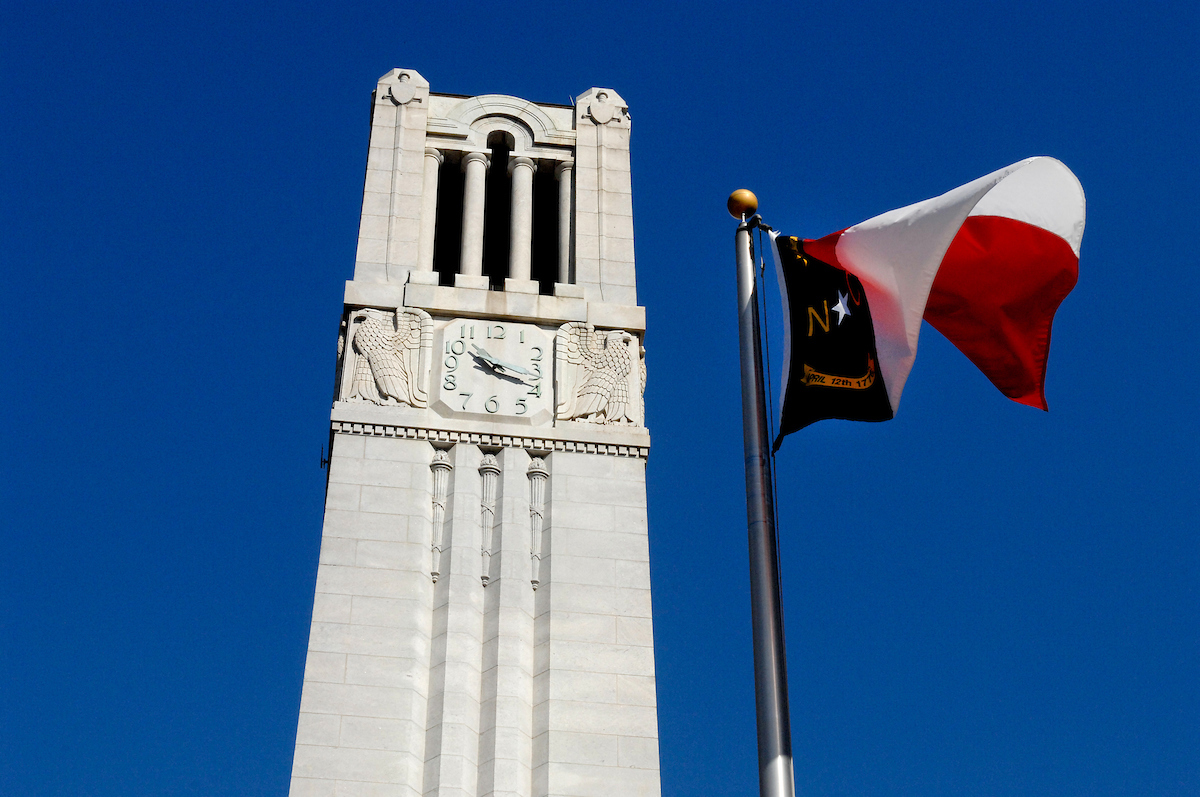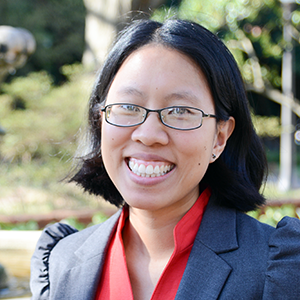Joy Tongsri, NCBI Leader and Facilitator

Joy Tongsri has been a longtime member of the NC State chapter of the National Coalition Building Institute. She has also been active in several other NC State programs in addition to being a staff member in the Park Scholarships office.
 Where are you from and where and in what fields did you earn your degree(s)?
Where are you from and where and in what fields did you earn your degree(s)?
I was born and raised in northern Virginia as the child of immigrants from Thailand. I was a first-generation college student and attended the University of Virginia, where I majored in Spanish and Psychology. I later received an M.A. from the University of Maryland in College Student Personnel.
How long have you been working at NC State, and in which departments?
My first job out of graduate school was in residence life, living on a college campus and overseeing a community of 1,250 first-year students. I moved to Raleigh in 2006 to accept a position at NC State’s University Tutorial Center, overseeing individual tutoring programs and supervising tutors. I began working in the Park Scholarships office in 2008 as an assistant director, and I have served as the associate director since 2009.
With which additional activities have you been involved during your time at NC State? What have you enjoyed doing most, and why?
There are tremendous opportunities for faculty and staff to be involved at NC State outside of our “day jobs,” and I’ve been fortunate enough to meet wonderful students and colleagues from across campus through these avenues. I don’t know if I can point to one specific activity that I have enjoyed the most. I have served as the advisor for student organizations including Habitat for Humanity and the Asian Student Association; some of my favorite memories include several spring break trips, whitewater rafting, and late-night rehearsals for Asia Nite. Another highlight has been working with the Office for Institutional Equity and Diversity and its predecessors. I am a facilitator for NC State’s affiliate chapter of the National Coalition Building Institute (NCBI), which annually provides diversity workshops for ~1,200 students, faculty, and staff, and serves on its leadership team. Through my involvement with NCBI, I’ve had the privilege of co-teaching an undergraduate class on leadership and diversity. I have served on committees for the GLBT and Women’s Centers and currently serve on the Council on the Status of Women and the At Home in the World Committee. The Center for Student Leadership, Ethics, and Public Service (CSLEPS) is another outstanding unit, and I’ve enjoyed serving as a presenter for the Leadership Development Series and working with the LeaderShape® Institute.
Why do you feel diversity programs are important in universities?
I contend that part of our work in higher education is to develop students into engaged citizens and ethical leaders who have the capacity to question and engender positive change in their communities. Moreover, prerequisites for that education and development are an appreciation and understanding of diversity and social justice issues; diversity programs are integral to that. It is part of our responsibility as educators to help prepare our students for the long-term, to transform the world, and also to actively work toward creating a campus community that is inclusive and engages students in these types of critical conversations. This important work requires a commitment of all of us, and not just in relation with each other; we must also dedicate ourselves to the continuing personal development that is necessary.
- Categories:


